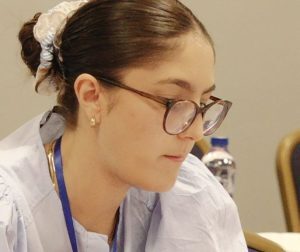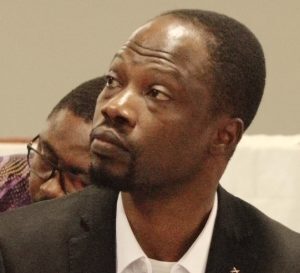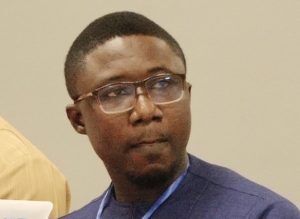Authored by: Francis Kemausuor, Joseph Akowuah, Akwasi Adu-Poku, Chinagorom Ajike, Elizabeth M Tennyson, and Lara Allen
On 24-25 September 2024, the Ghana Climate Compatible Growth Network held its annual workshop at the Fiesta Royale Hotel in Accra, marking exactly one year since the programme’s inception workshop. This event provided a unique platform for members to engage in substantive discussions, share insights, and collaborate on strategies to drive Ghana’s efforts toward sustainable growth. The workshop focused on actionable solutions and partnerships to address key challenges related to Ghana’s Energy Transition.
The workshop was attended by 68 participants drawn from government ministries, academic institutions, research organizations, civil society groups, and CCG researchers from the UK. The goal was to foster dialogue on CCG’s activities and operations within the newly launched Special Interest Groups (SIGs). The current five SIGs include Financing the Energy Transition, Green Hydrogen, Inclusive Net-Zero Emission Future, Clean Cooking, and New Energy Vehicles and Sustainable Transport.

Event Summary and Highlights
The workshop began with a welcome address from Prof David Ato Quansah, Director of TBHEC-KNUST, who provided an overview of TBHEC, ongoing projects, and how CCG’s partnership strategically aligns with Ghana’s energy transition steps. His address was followed by goodwill messages from Richard Sandall, representing the British High Commission, and Ing Seth Mahu, who spoke on behalf of the Ministry of Energy. Finally, Dr Jairo Quiros-Tortos, Deputy Director of CCG, delivered a keynote address highlighting CCG’s global activities, officially opening the workshop. The plenary session featured presentations from ongoing and completed research activities related to CCG activities in Ghana. The presentations shed light on various facets of Ghana’s transition to a sustainable energy future.
Presentations and Discussions
Dr Elizabeth Tennyson – CCG Network at a Glance
Dr Tennyson provided an overview of the global CCG Network’s structure, partnerships, and core research themes, which include system design, geospatial modelling, resilient infrastructure, material emissions, and investment pipelines. She highlighted the importance of data and models, capacity building, and advocacy efforts in driving climate-compatible growth across eight partner countries, including Ghana.
Prof Joseph Akowuah and SIG Leads – CCG Ghana Network and Special Interest Groups Overview
Prof Akowuah outlined the coordination of the CCG Ghana Network from TBHEC, the activities of the SIGs, and the broader country strategy aimed at fostering collaborative research and advocacy. He emphasized the need for financing and developing net-zero infrastructure, particularly in the energy and transport sectors, to support a just energy transition. The presentation was followed by a summary of the SIGs’ activities and plans by the SIG Leads.
Prof Jim Hall, University of Oxford – Towards Climate Resilient Infrastructure in Ghana
Prof. Hall introduced a potential sixth SIG focused on climate-resilient infrastructure. His presentation emphasized the importance of incorporating climate risk assessments into infrastructure investments. By pooling hazard and infrastructure data, Prof. Hall highlighted how adaptation planning, risk prioritization, and stakeholder-driven decisions could help develop a roadmap for projects that align with the Sustainable Development Goals (SDGs).

Hannah Luscombe, University of Oxford – Is Climate Transition Financially Affordable for Low- and Middle-Income Countries?
Ms. Luscombe’s presentation focused on the financial challenges of climate transitions in low- and middle-income countries. She introduced the MinFin tool, which projects financial requirements for net-zero transitions by integrating outputs from energy system models. Her presentation included a case study for Ghana, illustrating the financial feasibility of transitioning to a net-zero economy under current conditions.

Prof David Ato Quansah, KNUST – The Political Economy of Land Access for Large-Scale Solar Projects in Ghana
Prof. Quansah discussed land acquisition challenges for large-scale solar PV projects in Ghana. The study highlighted investor experiences, community sentiments, and potential solutions, including public-private land partnerships and community-based PV systems. His recommendations also included transitioning to rooftop solar systems and exploring alternative models for community participation.
Mr Mamud Musah, UENR – Energy Planning and Modelling through Integrated Assessment of CLEWs in Sub-Saharan Africa: The Cases of the Volta and Tana River Basins
Mr. Musah shared findings from the EPIC Africa project, which aims to optimize the synergy between land, water, and energy resources for sustainable development amidst climate uncertainties. He elaborated on UENR’s efforts to integrate a CLEWs-informed approach into Ghana’s energy planning, with applications in educational programs like the MPhil in Sustainable Energy Engineering and Management.

